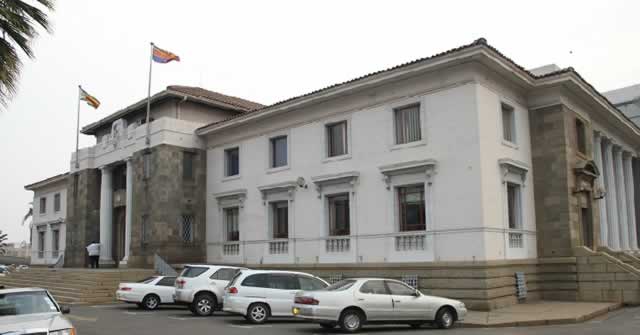Lethargic approach by City of Harare to waste management riles Govt

The government is disappointed with the lethargic approach by the City of Harare towards management of waste after the situation was declared a “state of disaster” at the beginning of this month.
President Emmerson Mnangagwa declared the state of disaster after noting the near collapse of garbage collection by the Harare and Chitungwiza City Council as well as the Ruwa and Epworth Town Boards, paving the way for the government to intervene.
The Environmental Management Agency (EMA) was then directed to coordinate and enforce refuse removal from the country’s first, third, fifth and seventh most populated urban centres.
Speaking during a routine tour to assess the progress that EMA is making in clearing the 625 illegal dumps dotted around the four local authorities since August 1, Environment, Climate, Tourism and Hospitality Industry Minister, Mangaliso Ndlovu yesterday said the local authorities were lukewarm in responding to a government directive to ensure the illegal dumps are cleared and not allowed to resurface.
“Our concern as I was touring today is that you clear today and the following day people have already started depositing waste because as local authorities, we are not providing an alternative for people to use. I think they have been lethargic in responding to the directive from the Minister of Local Government that they make sure that they do not only clear the waste, but come up with strategies that these illegal dumps will not resurface. We are seeing them resurfacing,” he said.
“I am sure you have seen that we have a vehicle going around talking to people. Going forward we will also make public the schedules when we would be clearing so that the local communities are part of this. As you can see we are here in Mbare with this huge dumpsite which we are about to clear and there are people sitting there and watching football. They are detached on what is happening so we want to improve on that coordination and make sure that people are seeing this being cleared in the interest of their health and that their surroundings are habitable. They will surely take heed and avoid dumping on illegal sites.”
Ndlovu said the Ministry of Local Government and Public Works had asked the four councils to provide their weekly refuse collection schedules which they have to religiously follow for the next three months when the disaster declaration would be in force.
EMA is going to publish the schedules to ensure residents know when refuse in their areas would be collected and discourage them from taking it to illegal dump sites.
“We are also encouraging our local authorities to think outside the box, to be more innovative in their approach. For instance you would find that it’s more expensive to collect litter door-to-door but they can put waste collection points that are well structured, maybe at the end of each street and rubbish would be placed there just like the way people are depositing waste illegally.
“Secondly, the local authorities can subcontract, surely this can be run as a business but they are struggling as we are seeing. So we are trying to encourage them to consider an option of subcontracting so that there are people who can come and manage waste as we have seen in other modern cities,, these are run by private companies,” he said.
EMA, which was mandated with clearing all the illegal dump sites has mapped around 625 illegal dumps in Harare City alone, 125 in Chitungwiza, 20 in Ruwa and 35 in Epworth.
“Our target was to clear these within the first 21 days but we are having a few teething challenges especially in terms of mobilising adequate resources, tipper trucks and also the distances from some of these areas. From Mbare to Pomona it is more than 25 km, so going and coming back takes a bit of time. But I am satisfied with what has been done so far. I want to appreciate the work that has been done by residents, EMA, partners and friends of the environment who have come on board,” explained Ndlovu.
He said when an appeal for resources for the exercise was put out through the Civil Protection Unit, the Zvimba Rural District Council had offered its tipper truck and waste compactor bought with Devolution Funds, yet bigger local authorities like Chitungwiza did not have such equipment.
“It just tells you that the capacity is not there and they are not investing adequately in terms of waste management and we will make sure that we are guiding and helping them along those lines,” said Ndlovu, adding that the government had commandeered what remains of all the funds directed towards waste management that the local authorities received from ratepayers to fund clearance of the illegal dumps.
If the funds are not enough, their Devolution Funds would be used to ensure the exercise was fully executed.
Environmental laws also needed strengthening as some of the problems experienced in local authorities were due to poor attitudes towards work as demonstrated by a Chitungwiza official who promptly called a friend to attend to a leak near a cleared dump site in Zengeza after EMA officials threatened to penalise the council.
“Perhaps we need to strengthen our laws to make sure that where possible negligence that leads to loss of lives people are held to account. We need to pierce the corporate veil because there is negligence that can be avoided which eventually leads to loss of lives as we have seen in the past,” Ndlovu said.
“We want to make sure that our local authorities are held accountable.
“We will also tighten the penalties that we are giving because it seems they are happy to pay the penalties.” — New Ziana.








Comments